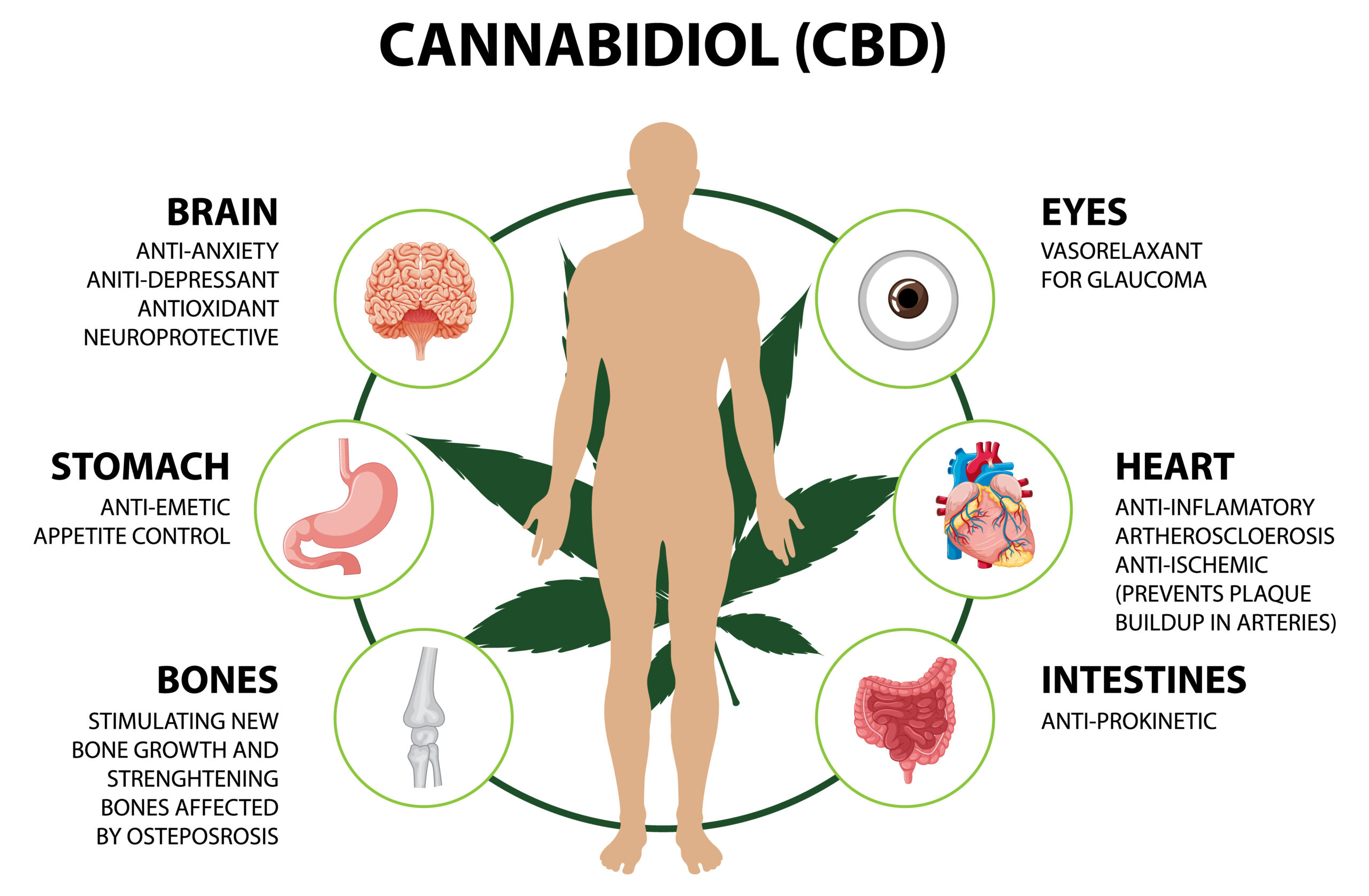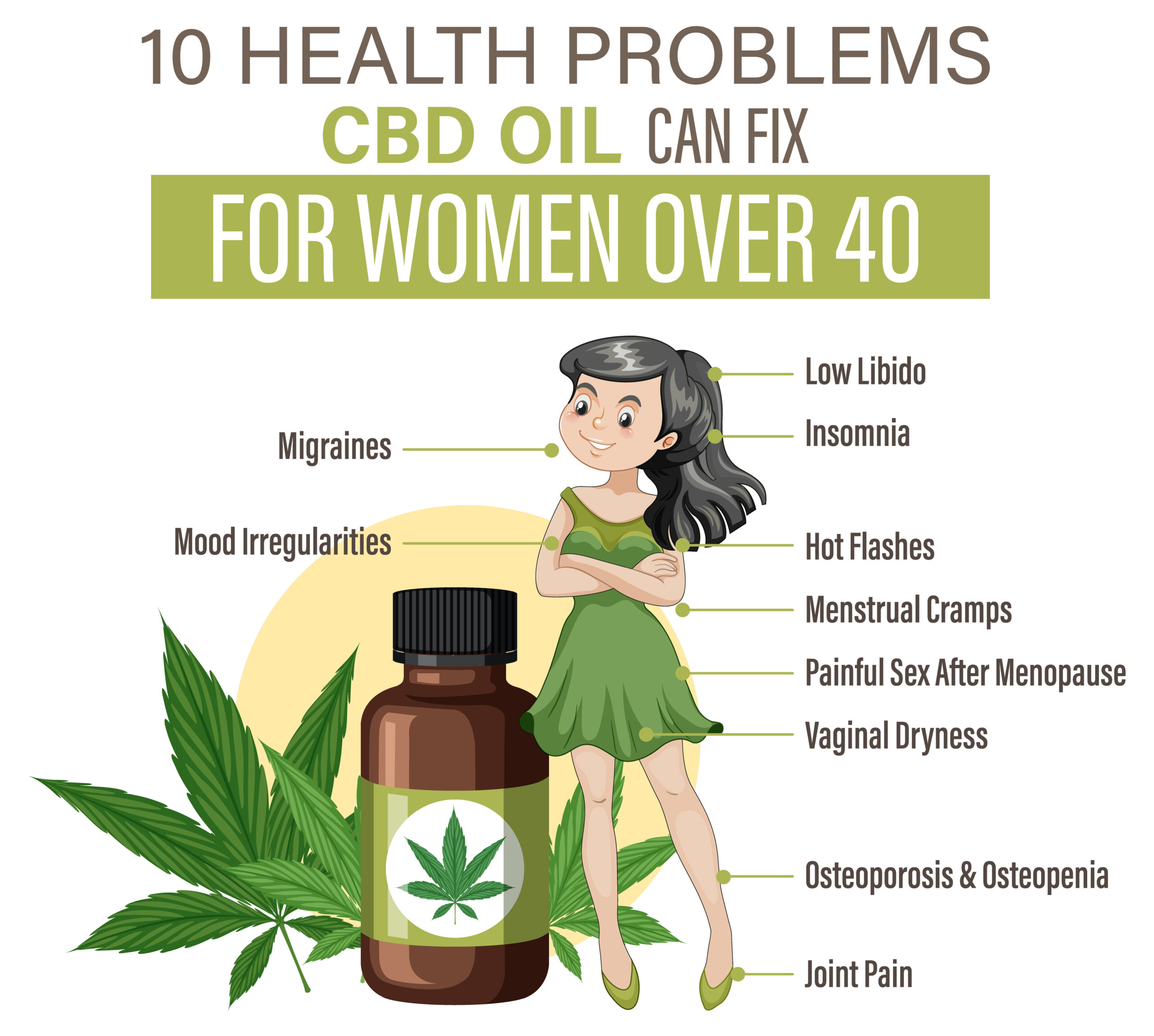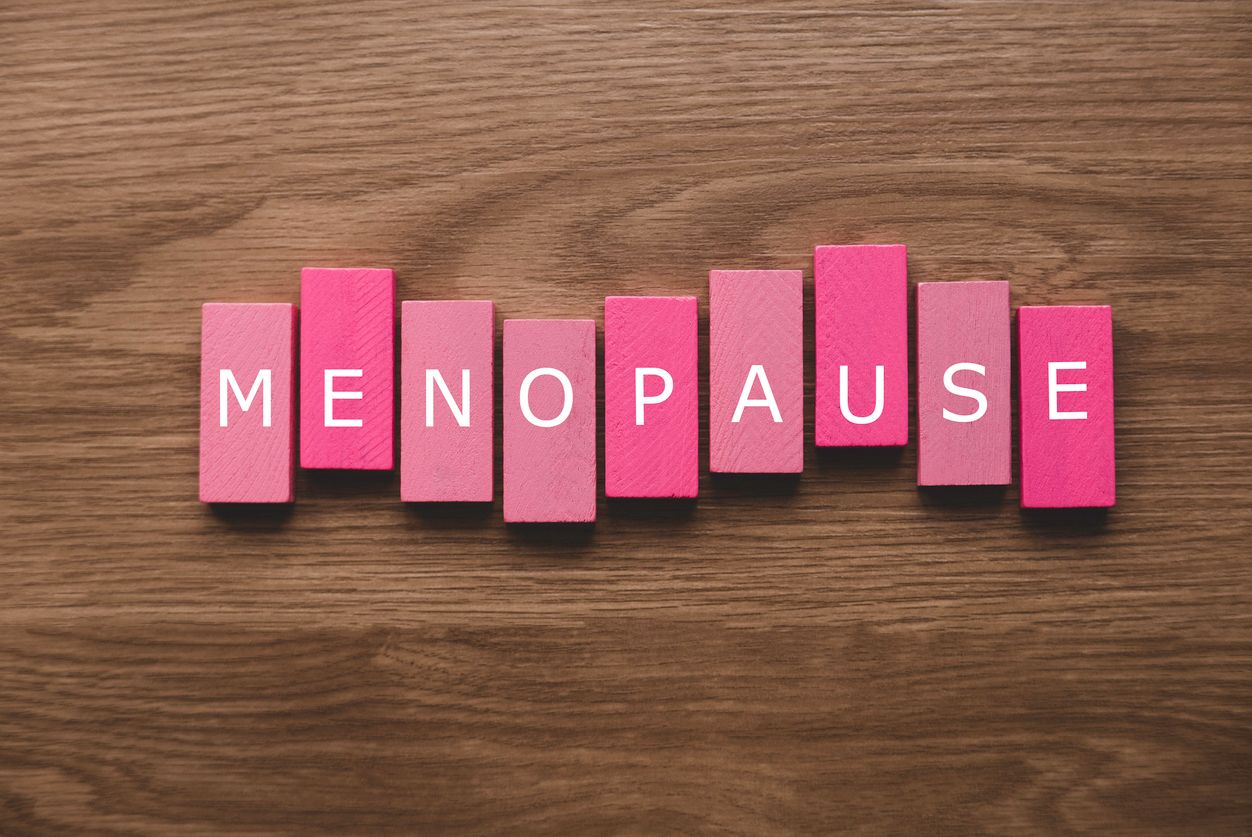Can CBD help manage menopause symptoms?
As women navigate the transformative journey of menopause, many are seeking ways to take charge of their wellbeing. An increasing number are now exploring Cannabidiol – CBD – as an ally in supplementing a balanced lifestyle during the transition.
Caused by a depletion of oestrogen and loss of ovarian function, menopause can profoundly impact all areas of our lives, including our relationships and self confidence.
Like our first period, menopause is the start of a new phase of womanhood which, for many, can be full of unknowns.
Despite the transition impacting every woman’s life, the topic is sometimes still taboo, leaving many unprepared and left in the dark. A recent survey of Australian women revealed that 73% of women did not know symptoms they were experiencing were due to menopause.
There are over 34 recognised symptoms of menopause including decreased sleep quality, weight gain, reduced sex drive, bone loss, inflammation, brain fog, anxiety, low mood and more, and they can range from mild to severe, and even sometimes last decades.
Hot flashes are usually the first thing that comes to mind when thinking about the menopause, but some women don’t experience them at all—it can affect us all differently.
While we don’t yet have lots of clinical studies on CBD and menopause, there’s a whole host of research checking out how CBD could help to tackle those tricky menopause symptoms, including pre-clinical research, case studies, analyses and surveys.
Going through the menopause can be a rollercoaster, so, we explore the latest science on CBD and some of the key challenges you might face to empower you with the knowledge you need to navigate your journey with confidence.
The Endocannabinoid System and hormones
Overarching the current knowledge on CBD and menopause is a link between oestrogen systems in the body and the Endocannabinoid System (ECS).
The ECS is key to how cannabinoids work to have an effect. It is a cell-signalling system that regulates physiological processes such as appetite and sleep, interacting with cannabinoids made both in the body – endogenous cannabinoids – and outside of the body – exogenous cannabinoids.
There are two main endogenous cannabinoids – anandamide and 2-arachidonoylglycerol – and hundreds of exogenous cannabinoids, including cannabinoids found in the cannabis plant such as CBD, THC, CBN and CBG.

Credit: Image by brgfx on Freepik
Cannabinoids from the cannabis plant directly interact with the ECS systems’ cannabinoid receptors known as CB1 and CB2 which are found throughout the body, including the ovaries. The ECS has even been found to regulate female reproduction, with functional problems leading to gynaecological diseases.
CBD – which does not cause the same “high” as THC – is thought to interact with the CB2 receptor that has been indicated in regulating pain and immune responses.
A 2021 review looking at research into cannabinoids and menopause related symptoms found that, in the future, the ECS might be considered both a prognostic marker and a therapeutic target to oppose harmful effects of menopause-related diseases.
It suggests that the hormone imbalances in postmenopausal women could induce an “alteration of cannabinoid receptor expression and endocannabinoids levels” which may be linked with increased inflammation, lowered bone density, increased oxidative stress, cardiovascular risk, and cancer progression.

Credit: Image by brgfx on Freepik
Anxiety
We all know that anxiety can be a real drain during menopause. Menopausal anxiety is caused by the decrease in oestrogen levels brought on by the transition, which impacts brain function.
So, could CBD be the key to relieving those menopausal nerves?
Current research suggests that CBD has anxiety and stress reducing properties. A 2020 review of studies, for example, found that the oral administration of CBD doses in the range of 6 mg to 400 mg was safe and effective for the treatment of generalised anxiety disorder, social anxiety disorder, and for anxiety related to post-traumatic stress.
A 2023 study of long-term, self-dosing CBD users in the US found that participants reported anxiety as one of the most common reasons for using the compound, with CBD reducing symptom severity, and a further study in mice found that CBD led to less displays of anxiety in the mice, with biochemical analysis showing decreased levels of oxidative stress.
How CBD may act on the body to have such effects is as yet unknown, however, it is known that the compound interacts with receptors in the body that regulate feelings.
CBD has also been found to increase levels of anandamide which is known to increase feelings of happiness, giving it the nickname “bliss molecule”.
Sleep
Menopause can wreak havoc on your sleep, and CBD might be the ticket you need to fast track to a good night’s rest.
Menopause symptoms can all impact sleep, including mood swings, hot flashes and anxiety. Getting a good night’s sleep may contribute to better management of menopause symptoms.
In Menodoctor’s survey of menopausal women, 81% of participants cited sleep problems as the top physical symptom of menopause, and 77% of the participants cited fatigue as one of the top physiological problems.
Research into CBD for the improvement of sleep is still in its early stages, but currently points to the compound having potential value for this purpose. In fact, one of the most commonly observed side effects of high doses of CBD is sedation.
Cannabinoids – including CBD – have been noted as emerging “sleep modulators”, with research demonstrating that they trigger sleep-promoting brain areas.
Results from a 2024 study looking at CBD and sleep shows that the compound may improve sleep quality, having a similar effect to 5mg of melatonin, and a 2023 review of 34 research studies suggests that CBD may have therapeutic potential for addressing insomnia. The study found that CBD alone or with equal quantities of THC may have beneficial effects for managing symptoms of insomnia, but notes that more thorough research is needed before a conclusion can be drawn.
Further results published in 2024 from a study exploring the nightly administration of 150 mg of CBD for the treatment of insomnia revealed improvements in sleep after two weeks compared to a placebo.
In a 2020 survey of UK CBD consumers, over 42% of respondents cited sleep as one of the top four reasons for using CBD.
Those looking to supplement sleep with CBD should consider ensuring healthy sleep hygiene practices, such as establishing a consistent bedtime routine and limiting screen time before bed, to help enhance overall sleep quality during the menopausal transition.
Bone loss
Let’s talk about bone loss – the inevitable sidekick of oestrogen depletion. Bone loss is a devastating symptom of menopause that puts women at increased risk of bone fractures and of developing osteoporosis, which causes bones to become brittle and break easily.
Hormone therapy is the go-to treatment for bone loss during menopause, but not everyone is able to take it. So, could CBD be your bones’ new best friend?
Previous research in animals has found that both the CB1 and CB2 receptors play a role in reversing bone loss, highlighting the receptors as targets for the treatment of complex bone diseases.
There has been some research into CBD’s impact on bones that suggests the cannabinoid may promote bone healing and bone cell growth. Findings from a 2023 study suggest that CBD exerts cell-specific effects which could help to enhance bone metabolism – a process that involves the formation of bone.
A further case study looking at the oral administration of CBD in two menopausal women revealed that CBD was associated with decreased bone turnover – with higher bone turnover being associated with faster bone loss in postmenopausal women.
Additionally, a study in mice found that CBD was associated with increased bone volume and mineral density, which contribute to the formation of healthy bone. The conclusion of the study goes on to suggest that CBD could replace non-steroidal anti-inflammatory drugs (NSAIDs) as a therapeutic agent that can help to manage post-fracture pain due to its analgesic effects.
Inflammation and Chronic Pain
Inflammation during menopause can cause a host of problems, from chronic pain to organ damage and increased risk of conditions such as dementia.
Many have touted CBD’s benefits for reducing inflammation and inflammatory-related pain, but is there science behind the claim?
As noted, cannabinoids from the cannabis plant directly interact with the CB1 and CB2 receptors. Research has shown that CBD is an agonist (a compound that activates a receptor) of a number of receptors involved in modulating inflammation and oxidative stress in the body, including the CB2 receptor. This receptor’s activation has been indicated to have anti-inflammatory and pain reduction effects.
CBD’s activation of transient receptor potential (TRP) channels in the body, which are involved in processes concerning cell signalling and the formation of senses such as smell and touch, also increases the production of the formerly mentioned “bliss molecule” anandamide, which has been found to suppress pain.
A study published in 2024 explored the relationship between CBD and the NLRP3 inflammasome, which regulates inflammatory signalling. It suggests that CBD may have anti-inflammatory properties by blocking the NLRP3 signalling pathway, leading to the suppression of inflammation.
Additionally, a recent review of studies looking at CBD’s impact on inflammation found that the compound has positive effects on arthritis, however, the effectiveness of CBD for arthritis may depend on concentration which can vary depending on route of administration such as oral, topical or inhaled.
The accumulation of research on CBD for inflammation and arthritis has led to the US Arthritis Foundation to issue guidelines on the use of CBD for people with arthritis.
Sexual wellness
Now, let’s dive into the details on how menopause can impact our most intimate moments, and how CBD might be the bedroom boost you need to rekindle your flame.
Hormonal changes during the menopause can have a notable impact on a person’s sexual function. The reduction in oestrogen and testosterone can reduce sex drive and cause vaginal dryness and pain during intercourse.
So, could CBD be the wingwoman for your libido and help keep your sensuality shining? A major factor that can impact sex drive is anxiety, and, as previously explored, CBD has been shown to have anti-anxiety properties.
As well as reducing anxiety, there are some indications that CBD may support healthy sexual function. A 2020 study revealed that women who used cannabis reported higher sexual function, however, research into specific cannabinoids for this purpose, including CBD, is extremely limited.
A 2023 study looking at the impact of cannabis on sexual function found that over 70% of participants reported an increase in sexual desire and orgasm intensity, as well as increased pleasure while masturbating. However, this data does not look at CBD on its own.
A number of case studies have indicated that CBD specifically holds potential benefits as a muscle relaxant, with reports going back as far as 1890 that show the use of hemp
extract in treating muscle spasms associated with tetanus and rabies.
In this regard, dyspareunia – the condition of pain during intercourse – can sometimes be caused by tight pelvic floor muscles. A survey of patients with chronic pelvic pain found that almost a quarter of the surveyed patients reported using cannabis alongside their prescribed therapy, noting improvements in symptoms.
Brain Fog
If you feel like your brain is playing hide and seek during menopause, you are not alone!
It’s the notorious brain fog that can cause poor concentration, confusion and forgetfulness. So, could CBD be the game-changer you’re looking for?
Brain fog is caused by disturbances in sleep and other menopause-related symptoms such as inflammation and puts women going through the menopause at increased risk of developing a neurological disease.
CBD’s possible benefits for symptoms such as anxiety and improving sleep may contribute to helping to reduce brain fog and stress, improve cognitive function, and allowing the body to relax.
Additionally, the loss of oestrogen that takes place during menopause can contribute to memory problems, and one study in mice found that CBD reverses memory impairment related to oestrogen depletion in an experimental model.
The study concluded that CBD facilitates functional neural recovery suggesting the compound as a potential treatment for oestrogen decline-induced deterioration of neural functioning.
One beneficial way to alleviate brain fog is to exercise regularly, which can be difficult when struggling with pain, inflammation and fatigue. With research pointing to CBD’s potential benefits for supporting these symptoms this could help people keep exercise as part of their regular routine as well as potentially benefit recovery.
Conclusion
While we are still unravelling the mysteries of CBD for menopause, newly emerging research suggests that the compound may play a role in modulating pathways of disease and inflammation, improving sleep, reducing anxiety and positively affecting sex lives.
There are many studies that have reported on the safety and efficacy of CBD for a number of conditions, however, further reviews suggest there needs to be more rigorous research to draw conclusions, raising considerations such as drug-drug interactions and CBD’s impact on the liver.
You can learn more about taking CBD for menopause, including understanding dosage and full-spectrum products, ensuring quality, and picking the right type of product such as oils, gummies or capsules, in our overview here.
CBD is not a substitute for advice from a medical professional, however, with the guidance of a doctor, an informed choice can be made on whether this botanical compound might support your menopause journey.














